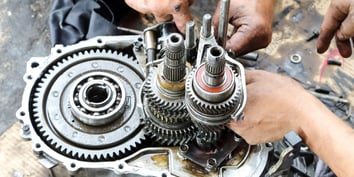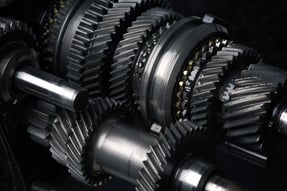When to Repair a Transmission
 Every transmission that comes into your shop - even ones that you've worked on before - will have different needs. Your inspection will reveal the level of damage the unit has suffered, and then you have a decision to make. What type of service should you complete to get this unit back in the vehicle and back on the road?
Every transmission that comes into your shop - even ones that you've worked on before - will have different needs. Your inspection will reveal the level of damage the unit has suffered, and then you have a decision to make. What type of service should you complete to get this unit back in the vehicle and back on the road?
For transmissions that come into your shop with isolated issues, one option is repairing the broken components, rather than completing a full rebuild. Transmission repairs, as with any other option, come with advantages and disadvantages to consider, and we'll walk you through them today.
Times When a Transmission Repair Can Be the Better Option
 When only one part is broken or needs replaced. Because a transmission repair only entails replacing or fixing the minimum number of parts (as few as one), it can be a great option for transmissions with a lot of mileage left in the rest of its parts. Parts like the input shaft, clutches, seals, rings, or torque converters can often be replaced with an overhaul kit and without rebuilding or remanufacturing the entire unit. In these cases, repairs can be both time- and cost-effective.
When only one part is broken or needs replaced. Because a transmission repair only entails replacing or fixing the minimum number of parts (as few as one), it can be a great option for transmissions with a lot of mileage left in the rest of its parts. Parts like the input shaft, clutches, seals, rings, or torque converters can often be replaced with an overhaul kit and without rebuilding or remanufacturing the entire unit. In these cases, repairs can be both time- and cost-effective.- When you're dealing with an older vehicle. Your customer is wary to invest in a rebuild or reman unit for a vehicle that doesn't have many miles left in it. As long as the transmission still has minimal issues that can be solved by replacing very few parts, a repair is a great option for a car that only needs to be on the road for a little while longer.
- When you're working on a commonly repaired unit or transmission type. Ultimately, the ability to simply repair a transmission depends on the type of failure you're working with. However, some transmissions may be known to experience issues that can are generally resolved with minimal repairs, as opposed to a full rebuild. Researching a specific unit or type of transmission before starting your work might reveal that in general, it's a good candidate for a repair. Reach out to other technicians or shops, industry professionals, or suppliers who can help you learn more about the transmission you're working with.
The True Costs of Transmission Repairs
The key trait of any transmission repair job is that the transmission is only experiencing the failure of one (or very few) parts. If the damage to the transmission is too great and affects too many components, a repair job will end up costing almost as much as a rebuild, but without the security of fully replacing all worn parts or updating to the latest transmission technology. At that point, a repair might not be the smartest option.
Additionally, if something else within the unit fails, it may cause more damage and effectively undo the repair you completed. Depending on your warranty, your shop may be left responsible for a comeback to correct the repair, and if more work is necessary, your customer might be less than satisfied to pay for that additional work. Repairing transmissions inherently come with more risk, in this respect.
While a transmission repair can be a useful option, especially in terms of saving time and money, you should always consider each transmission job as an individual case. Know your options; you might be surprised by the benefits of a full reman, the positives of rebuilding the transmission in-house, and the quick solutions a repair can provide. With all that in mind, you'll be well-prepared to make the best service choice every time.


